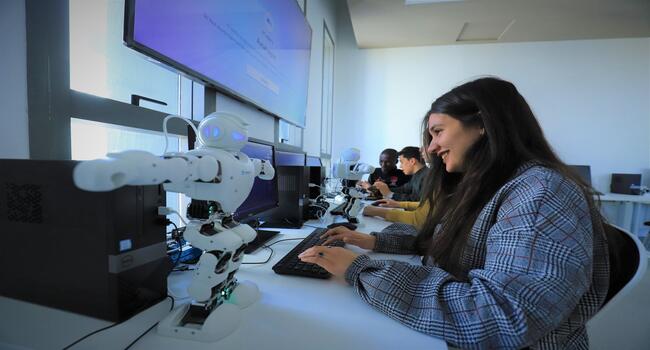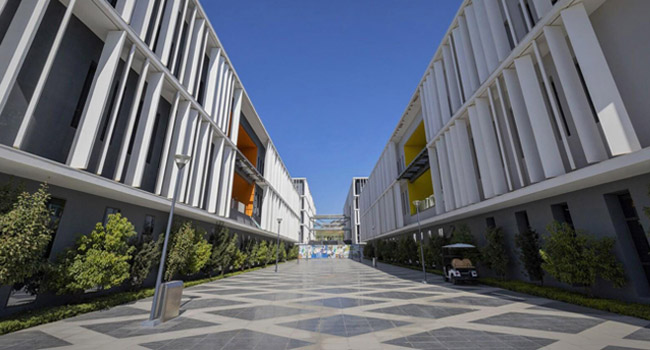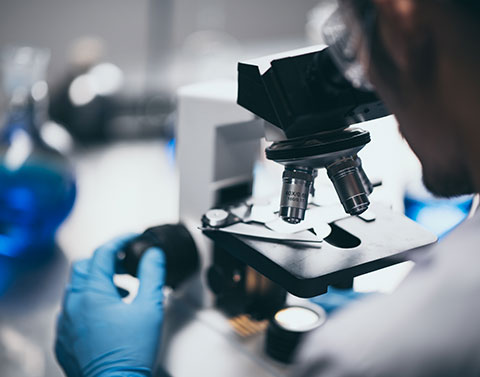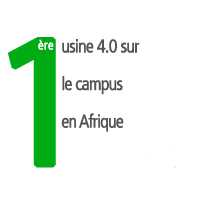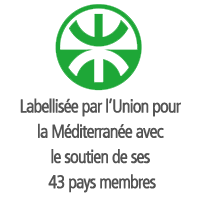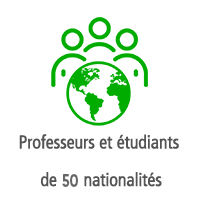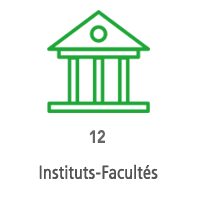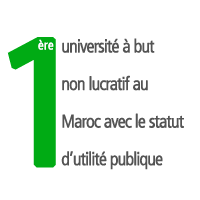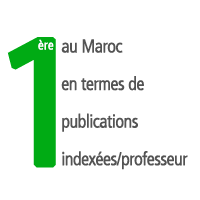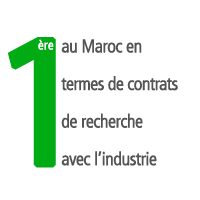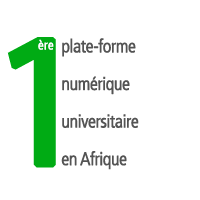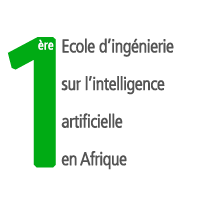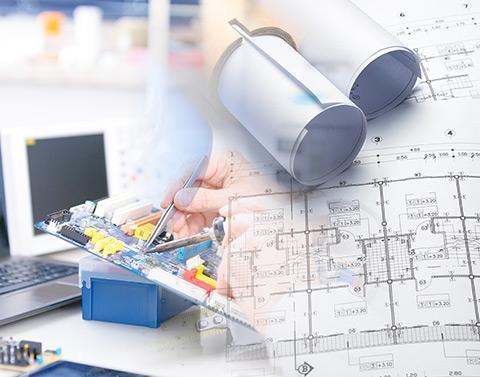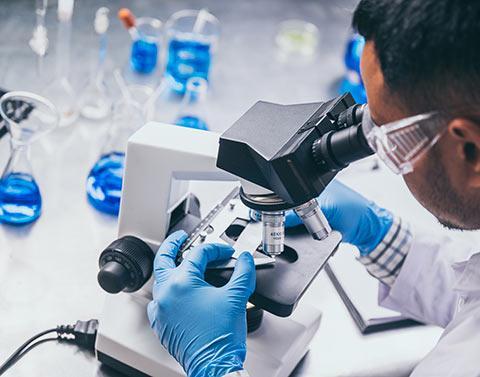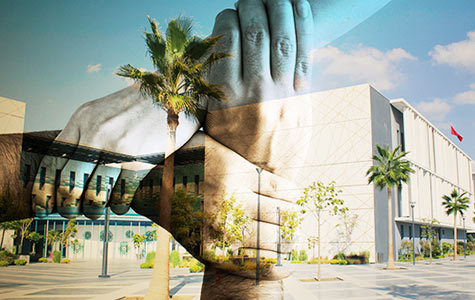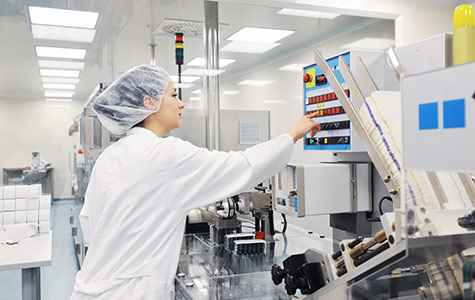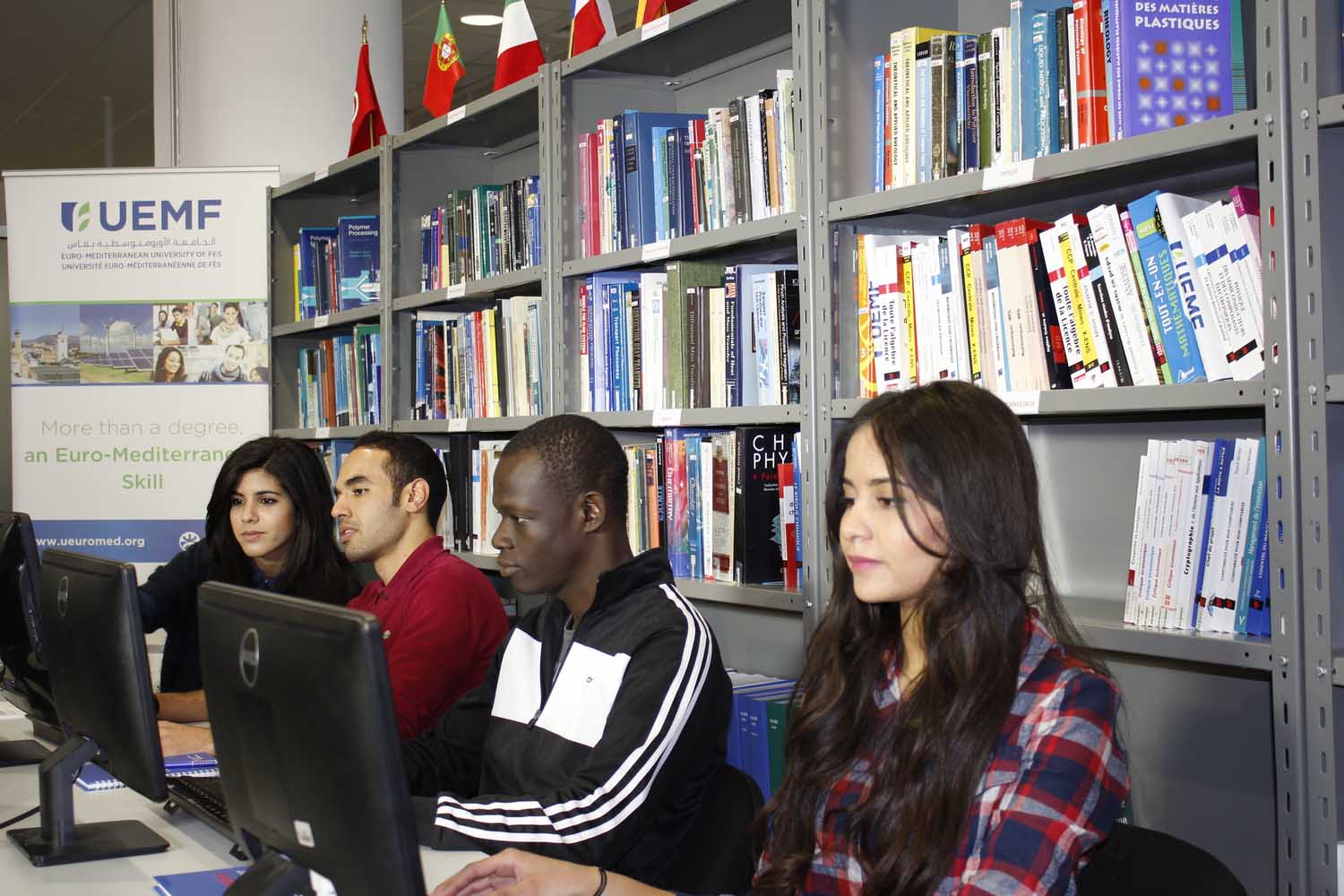Génie Mécanique, productique et thermique
Ingénieur d’Etat
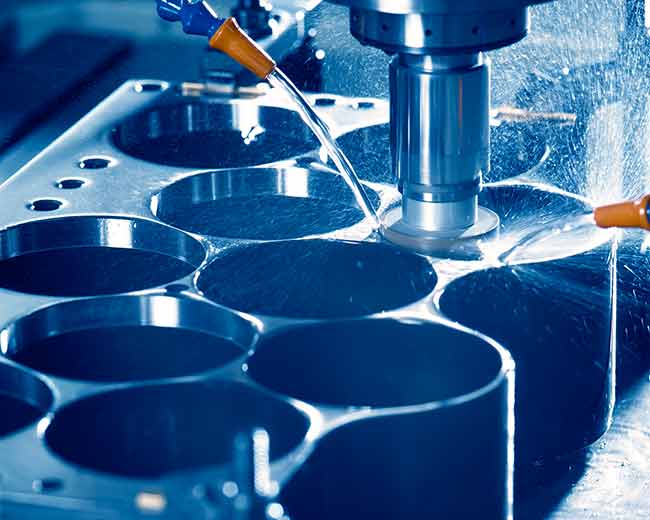
Diplôme délivré
: Ingénieur en génie mécanique, productique et thermiqueDurée des études
: 3 ansCoordonnateur
: Pr. Mostapha EL JAIModules du tronc commun en génie mécanique
Code ==> Intitulé du module
GM11 ==> Conception Assistée par Ordinateur
GM12 ==> Dynamique des corps rigides
GM13 ==> Dynamique des fluides appliquée
GM14 ==> Transferts de chaleur
GM15 ==> Méthodes statistiques pour ingénieurs
GM16 ==> Matériaux pour l'ingénieur
GM17 ==> Comportement mécanique et essais des matériaux
GM18 ==> Langues et communication I
GM21 ==> Analyse numérique pour l'ingénieur
GM22 ==> Algorithmes et structures des données pour ingénieurs
GM23 ==> Programmation avancée en C++ pour ingénieurs
GM24 ==> Résistance des composantes de machines et des assemblages
GM25 ==> Systèmes et mesures
GM26 ==> Energétique I
GM27 ==> Fabrication mécanique I
GM28 ==> Langues et communication II
GM31 ==> Dynamique des vibrations
GM32 ==> Contrôle non destructif des matériaux
GM33 ==> Machines thermiques
GM34 ==> Fabrication Assistée par Ordinateur
GM35 ==> Project Management
GM36 ==> Fabrication mécanique II
GM37 ==> Ingénierie et conception I
GM38 ==> Langues et communication III
GM41 ==> Mécatronique I
GM42 ==> Systèmes hydrauliques et pneumatiques
GM43 ==> Tribologie et traitement de surface
GM44 ==> Fabrication additive I
GM45 ==> Ingénierie et conception II
GM46 ==> Analyse économique en ingénierie
GM47 ==> Développement et cycle de vie des produits
GM48 ==> Langues et communication IV
Option PRODUCTIQUE
Code ==> Intitulé du module
GM51P ==> Commande industrielle
GM52P ==> Mécatronique II
GM53P ==> Robotique industrielle et appliquée
GM54P ==> Fabrication additive II
GM55P ==> Ingénierie et conception III
GM56P ==> Data Science and Maintenance
GM57P ==> Production management
GM58P ==> Innovation et entrepreneuriat
PFE ==> Projet de fin d’études
Option THERMIQUE
Code ==> Intitulé du module
GM51T ==> Commande industrielle
GM52T ==> Aéroélasticité et interaction fluide-structure
GM53T ==> Turbomachines et Propulsion
GM54T ==> Moteurs thermiques et hybrides
GM55T ==> Ingénierie et conception III
GM56T ==> Energétique II
GM57T ==> Production management
GM58T ==> Innovation et entrepreneuriat
PFE ==> Projet de fin d’études
La formation en génie mécanique est tout à la fois généraliste et très spécialisée. Elle permet d’aborder des études de pointe comme calculer l’écoulement autour d’un avion ou encore d’assurer la direction de grands projets intégrateurs. Globalement, le programme d’ingénieur en génie mécanique de l’Euromed Polytechnic School comporte un tronc commun pour l’acquisition des connaissances fondamentales en génie mécanique et deux cheminements de spécialisation, l’un en productique et l’autre en thermique.
Dans ce cadre, en vertu de la présence quasi-systématique de composants mécaniques dans les objets de notre quotidien, la formation en génie mécanique offre des débouchés très variés.
En tête des domaines de prédilection, on trouve celui de la construction (automobile, navale, aéronautique ou aérospatiale), celui de l’industrie des machines et celui de la conversion et de la gestion de l’énergie.
De ce fait, bon nombre de diplômés en génie mécanique rejoignent le monde de la grande industrie et sont amenés à se spécialiser soit dans la conception de nouveaux produits, soit dans leur production, voire encore dans le marketing ; leur rôle consistant alors à trouver des marchés et à conseiller la clientèle.
D’autres ont la possibilité de cumuler l’ensemble de ces rôles soit en décidant de rejoindre une entité plus petite, soit en créant une structure propre ; les domaines d’innovation qui ont recours à la mécanique ne manquant pas.
Enfin, une partie des diplômés choisit de poursuivre son cursus académique en intégrant un programme doctoral.
Par ailleurs, la formation en génie mécanique étant universellement reconnue, elle permet facilement d’envisager une carrière au Maroc ou à l’étranger.
Descriptif de la filière :
Depuis longtemps, l’être humain crée des engins permettant de démultiplier sa force et son habiletéen utilisant les lois physiques ou en captant l’énergie présente dans la nature.
Du dérailleur d’une bicyclette au turboréacteur d’un avion, de la ferme éolienne à la prothèse d’un genou, le domaine du génie mécanique est infiniment vaste et en perpétuelle évolution.
L’ingénieur mécanique formé à l’EuromedPolytechnicSchool possède ainsi une solide formation fondamentale et est capable d’intégrer un ensemble de contraintes (matériaux, fabrication, performance, mise en service, maintenance, fiabilité, coûts, risque) pour développer une solution globale viable. De ce fait, partout où il y a des machines ou des instruments, il y a des ingénieurs en mécanique pour les concevoir, les fabriquer et les perfectionner. La conversion de l’énergie est aussi un domaine d’étude et de recherche fondamentale pour l’ingénieur en mécanique.
Euromed Polytechnic School (EPS)
- Aptitude à appréhender, connaître et comprendreun large champ de sciences de bases (physique, énergétique, mécanique, matériaux…) et capacité d’analyse et de synthèse associée.
- Maitrise des méthodes et des outils de l’ingénieur : identification, modélisation, simulation et résolution de problèmes, utilisation des outils informatiques, analyse et conception de systèmes.
- Capacité à trouver l’information pertinente, à l’évaluer et à l’exploiter.
- Capacité à définir le cahier des charges d'un système mécanique, à le concevoir, le dimensionner, le prototyper et le valider.
- Capacité à piloter et automatiser un système mécanique.
- Capacité à élaborer, mettre en place et gérer un processus de fabrication d’un produit et son processus de certification qualité (contrôles, essais) en respectant les normes associées.
- Capacité à optimiser un procédé de fabrication en intégrant les spécifications techniques, économiques et la durabilité des produits via des outils de simulation et de surveillance.
- Capacité à décider de l’organisation et de la gestion d’un système industriel.
- Capacité à analyser des indicateurs de gestion issus de systèmes industriels et à contribuer à un système d’assurance qualité.
- Capacité à effectuer des activités de recherche en génie mécanique et à mettre en place des dispositifs expérimentaux instrumentés.
- Analyse et définition du besoin, rédaction du cahier des charges, étude de faisabilité,identification des verrous, définition des livrables,mise en œuvre et adaptation aux contraintes, planification, évaluation et retour d’expérience.
- Aptitude à prendre en compte les enjeux de l’entreprise :analyse de l’environnement, dimension économique, respect de la qualité, compétitivité et productivité, exigences commerciales, intelligence économique.
- Capacité à identifier la problématique à un niveau stratégique : enjeux, objectifs, relations avec le client.
- Aptitude à prendre en compte les enjeux de la relation au travail, d’éthique, de sécurité, de santé au travail et de développement durable.
- Capacité à entreprendre et innover dans le cadre de projets personnels ou par l’initiative et l’implication au sein de l’entreprise dans des projets entrepreneuriaux,mais aussi mise en œuvredu processus intrapreneurial.
- Capacité à se connaitre, à s’autoévaluer, à gérer ses compétences et à opérer ses choix professionnels.
- Capacité à structurer, planifier et redimensionner un projet dans le cadre d’un travail collaboratif.
- Aptitude à travailler en contexte international : capacité d'adaptation, maitrise d’une ou plusieurs langues étrangères et ouverture culturelle associée.
- Capacité à animer une organisation (équipe, service...) et à la faire évoluer : exercice de la responsabilité, esprit d’équipe, engagement et leadership.
- Aptitude à communiquer, écouter, rendre compte et expliqueravec sa hiérarchie, avec des spécialistes ou des non spécialistes.
L’accès en 1èreannée du cycle d’ingénieur en géniedes procédés est ouvert :
Par voie automatique :
Etudiants ayant validé les 2 années préparatoires intégrées de l’Euromed Polytechnic School ;
Etudiants des classes préparatoires scientifiques admissibles au Concours National Commun ou équivalent.
Par voie de concours et entretien :
Etudiants ayant validé les deux années préparatoires intégrées à un cycle d’ingénieur différent de celui de l’Euromed Polytechnic School ;
Etudiants ayant validé les deux premières années post-baccalauréat en sciences, sciences et techniques ou en technologie ou les trois premières années post-baccalauréat en sciences, sciences et techniques ou en technologie.
Pour cette catégorie, la sélection se fait sur la base de :
Résultats obtenus au baccalauréat ;
Résultats obtenus dans les années post-baccalauréat ;
Entretien technique et de motivation.
Pourquoi choisir le cycle d’ingénieur en génie mécanique ?
Le génie mécanique est issu du besoin immémorial des êtres humains de maîtriser leur milieu, de leur envie de comprendre comment celui-ci fonctionne et de leur volonté d’utiliser à leur profit les lois qui régissent la nature. Il joue ainsi un rôle essentiel dans tous les domaines aux enjeux importants dont on ne citera que trois exemples :
- L’utilisation responsable des ressources naturelles : les ingénieurs en mécanique imaginent et conçoivent les installations de transformation de l’énergie solaire, éolienne, thermique et hydraulique.
- Les transports : du vélo à la fusée en passant par le train, la voiture et l’avion, voilà bien des domaines où l’inventivité des ingénieurs en mécanique a toujours pu s’exprimer de manière spectaculaire tout en recherchant des réponses optimales par rapport aux préoccupations sociétales.
- La production de biens : ces spécialistes de la mécanique sont un maillon important dans tous les processus industriels de fabrication contribuant, en outre, à les repenser pour obtenir de meilleurs rendements et un fonctionnement plus respectueux de l’environnement.
Les diplômés dans le domaine du génie mécanique exercent leur activité essentiellement dans le cadre d’entreprises issues des secteurs tels que la fabrication d’équipements mécaniques (machines-outils, machines spéciales), les transports (automobile, aéronautique), l’énergie, la métallurgie et la sidérurgie, mais aussi dans d’autres secteurs tels que les biens de consommation et l’agroalimentaire.
L’ingénieur EUROMED en génie mécanique exerce également son activité dans les services liés à l’ingénierie, les études et conseils techniques.
Dans l’industrie, il est responsable de la production ou du bureau d’études, de l’exploitation, de la maintenance, des essais, de la qualité et de la sécurité.
Il a des fonctions dans l’administration, la gestion, la direction de services de production. En outre, il peut exercer des fonctions dans l’enseignement et la recherche.






